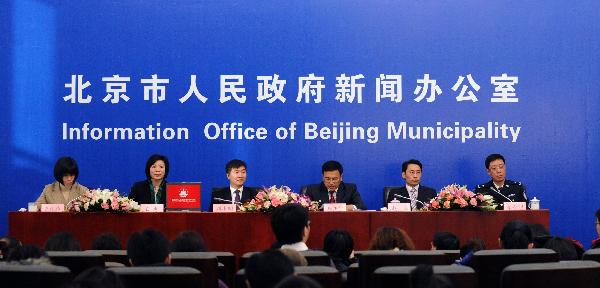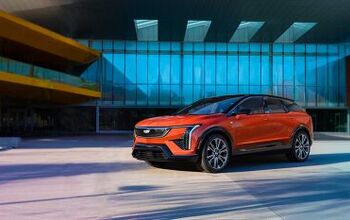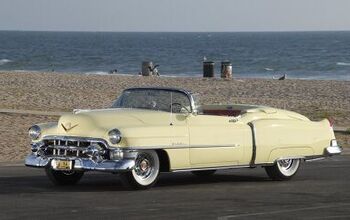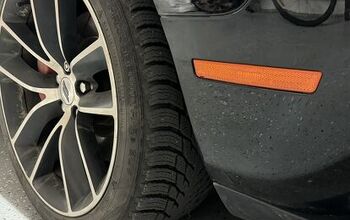Beijing Hands Down Harsh Measures Against New Cars

China’s Capital Beijing received a largely unwanted Christmas present yesterday: Drastic curbs on new car registrations. “Under the new regulations, vehicles purchased starting today will be subject to strict new restrictions,” reports Global Times, “setting off a last-minute, car-buying spree last night.”
- The city will license only 240,000 new vehicles next year, and buyers of new cars will have to apply for license plates by means of a lottery. This quota is about a third of the 700,000 new cars that have hit Beijing roads this year.
- Only permanent residents of Beijing, as well as “military servicemen, foreigners, residents of Hong Kong, Macao and Taiwan” are eligible to apply for license plates.
- Cars not licensed in Beijing will be barred from entering the main city area during rush hours on work days.
- Beijing municipal government agencies and public institutions will not increase the size of their motor vehicle fleets during the next five years.
- A Beijing driver will be permitted to own only one car in his or her name.
- Car owners who replace their old vehicles will be automatically given new car plates and do not have to take part in the lot-drawing.
The China Assoc
iation of Automobile Manufacturers (CAAM) protested, saying that the new restrictions are unfair, and that the limit on auto purchases will have a negative impact on the general economy in China. The resale value of my car in the downstairs garage in Beijing however exploded overnight.
Grouching Beijingers have themselves to blame: Earlier this month, the Municipal Commission of Transport released a draft plan on clearing traffic congestion, which was posted online to gauge public reaction from Dec 13 to 19. More than 3,000 responses were received from members of the public and only 5.8 percent of the respondents opposed the plan. However, the plan had mentioned nothing a bout a drastic limitation.
Even before the earlier draft plan was published, rumors of limits ran rampant in Beijing over the last two months, prompting a reverse effect: Sales of cars in Beijing reached 96,000 units last month, an increase of 24,000, or up 33 percent, says the CAAM. A total of 30,000 new vehicles were licensed in the past week alone, the Xinhua News Agency reports. Car ownership in the city has surged to 4.7 million vehicles this year from 2.6 million in 2005. Yet, this represents a car density of only 210 per thousand in China’s second most populous city. The average in China is 63 per thousand. The average in the U.S.A. is more than 800 cars per thousand.

Bertel Schmitt comes back to journalism after taking a 35 year break in advertising and marketing. He ran and owned advertising agencies in Duesseldorf, Germany, and New York City. Volkswagen A.G. was Bertel's most important corporate account. Schmitt's advertising and marketing career touched many corners of the industry with a special focus on automotive products and services. Since 2004, he lives in Japan and China with his wife <a href="http://www.tomokoandbertel.com"> Tomoko </a>. Bertel Schmitt is a founding board member of the <a href="http://www.offshoresuperseries.com"> Offshore Super Series </a>, an American offshore powerboat racing organization. He is co-owner of the racing team Typhoon.
More by Bertel Schmitt
Latest Car Reviews
Read moreLatest Product Reviews
Read moreRecent Comments
- Jeff I have had about 6 recalls on my 2022 Maverick hybrid with most of them needing program updates other than that I really like my Maverick.
- Daniel J One thing to note: just because it's 240v doesn't mean the circuit can handle the load. How if a breaker trips and something important is on that breaker (lighting, sump pump... whatever). How if all the 240 receptacles are on the same circuit and two people charge at the same time?
- Redapple2 A slight twist of the topic. > A good reason to buy a car before they do a redesign (beyond teething problem for the newborns). Getting a car with the old tech. IE- vanishing Carplay. New subscription requirements. And doing away with switches and knobs and substituting a huge TV screen. I got a 2024 Forester because the 2025 moves everything to the new huge TV screen. A/C settings. Seat heat. All wheel drive modes etc. All in the TV screen. Some of it buried on page 3 of a submenu. No. Hard no. I m not participating in this.
- Lou_BC 2022 Colorado ZR2 diesel:1st year:I got a "low oil" warning the first few months of ownership. Dealer checked oil consumption every month for 6 months. No oil consumption. Probably incorrectly filled at factory and missed with PDI. AC did not work. Noticed that 2 weeks later during a hot spell. Local dealership lazy and just recharged system. They assumed GM factory screwed up. It leaked out and wasn't working after winter. Tech did a leak test and found problem. Sold without module that runs heated seats (chip shortage). I got a $50 refund and when parts showed up they inserted module. Repaired right before winter. DEF heater too weak to keep up with extended cold weather. ECU did threaten "limp mode". Dealer claims everything was working as designed. Multiple small dents in rear wheel wells close to plastic fender flares. Rock damage from driving on gravel roads. Factory wheel well liners are sh!t. GM spray in liner does not cover entire tailgate. Cheap bastards. 2nd year:DEF system froze up again. Service adviser said they sell more trucks in California than Canada. Get a heated garage. Rear brakes. Left rotor and pads fried at 50,000 km. Right side not quite to metal. I was told this was normal for Chevy trucks used offroad. Lost a rear shock guard. Poor design. Cheap. Diff vent line dislodged. Wheel design pretty but prone to rock chips and rock damage. Dented a rock slider on a big rock. Often find little pebbles in between plastic flares and metal fenders. Rear bumper seams also collect pebbles. Duratrac's are a decent all around tire but are too soft for extended time on gravel roads. Chewed up and very little tread at 60,000 km. Lost 1 tire to sidewall puncture. It definitely isn't as well built as my previous trucks. I seriously doubt I'd buy another Chevy. I like the truck overall. Love the diesel drivetrain.
- HotPotato Honestly VW should have bought Canoo too -- the Canoo is a much better rendition of a modern VW van than the actual VW EV van, which is just a standard generic Euro delivery van disguised by a vintage 2-tone paint job.


































Comments
Join the conversation
Singapore has similar rules and higher costs. This is what happens when reality catches up with the fantasy of private vehicle ownership. Japan requires a parking space to be proven to exist for a car before it can be registered in certain areas. I paid 300 a month for a spot and it came with dimensions too, lest I try to register something bigger than the spot. In Singapore the Certificate of Entitlement ( CoE) usually costs more than the car.
Those horrific scenes of the haze can't be because of the cars can it? The density isn't there. And what of truck traffic? With the growth rates, economic development and migratory patterns I'd wager that the so called relief will be minor at best.